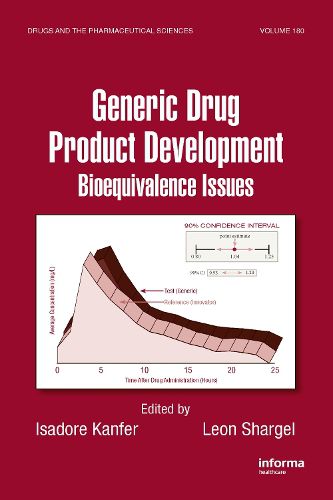Readings Newsletter
Become a Readings Member to make your shopping experience even easier.
Sign in or sign up for free!
You’re not far away from qualifying for FREE standard shipping within Australia
You’ve qualified for FREE standard shipping within Australia
The cart is loading…






The assessment of bioequivalence is an important process whereby the bioavailability of a generic drug product is compared with its brand-name counterpart. Generic pharmaceutical products must be approved as therapeutic equivalents to the brand name alternative in order to be interchangeable. The demonstration of bioequivalence is an important component of therapeutic equivalence. Bioequivalence studies are very expensive, time consuming and always have the possibility of failure. The objective of this textbook is to describe some of those specific bioequivalence issues which need to be considered for the design and conduct of bioequivalence studies. By exploring scientific, legal, and international regulatory challenges, Generic Drug Development, discusses the use of alternative approaches to the measurement of plasma drug concentrations for the demonstration of bioequivalence, and covers bioequivalence procedures for drug products that are not easily assessed - based upon the physical and chemical properties of the active drug and the nature of the drug product.
$9.00 standard shipping within Australia
FREE standard shipping within Australia for orders over $100.00
Express & International shipping calculated at checkout
The assessment of bioequivalence is an important process whereby the bioavailability of a generic drug product is compared with its brand-name counterpart. Generic pharmaceutical products must be approved as therapeutic equivalents to the brand name alternative in order to be interchangeable. The demonstration of bioequivalence is an important component of therapeutic equivalence. Bioequivalence studies are very expensive, time consuming and always have the possibility of failure. The objective of this textbook is to describe some of those specific bioequivalence issues which need to be considered for the design and conduct of bioequivalence studies. By exploring scientific, legal, and international regulatory challenges, Generic Drug Development, discusses the use of alternative approaches to the measurement of plasma drug concentrations for the demonstration of bioequivalence, and covers bioequivalence procedures for drug products that are not easily assessed - based upon the physical and chemical properties of the active drug and the nature of the drug product.